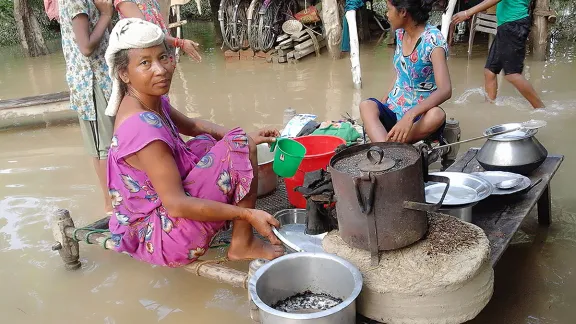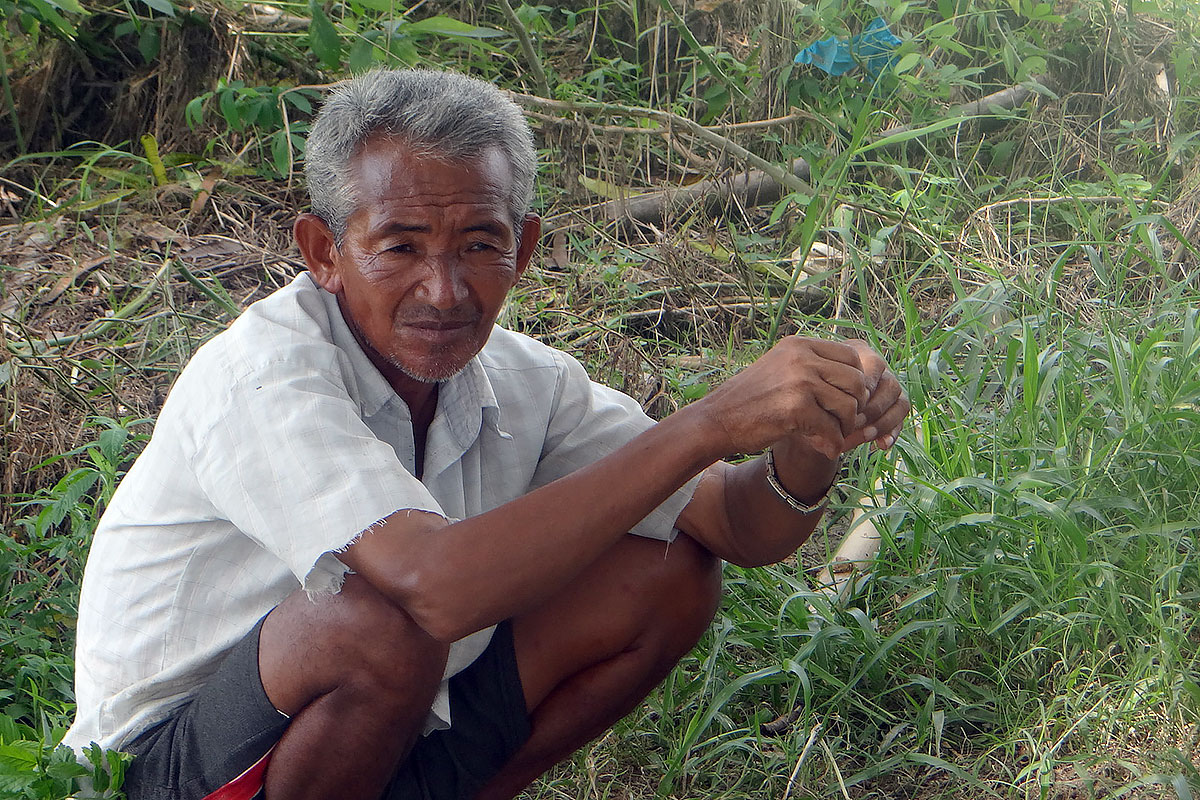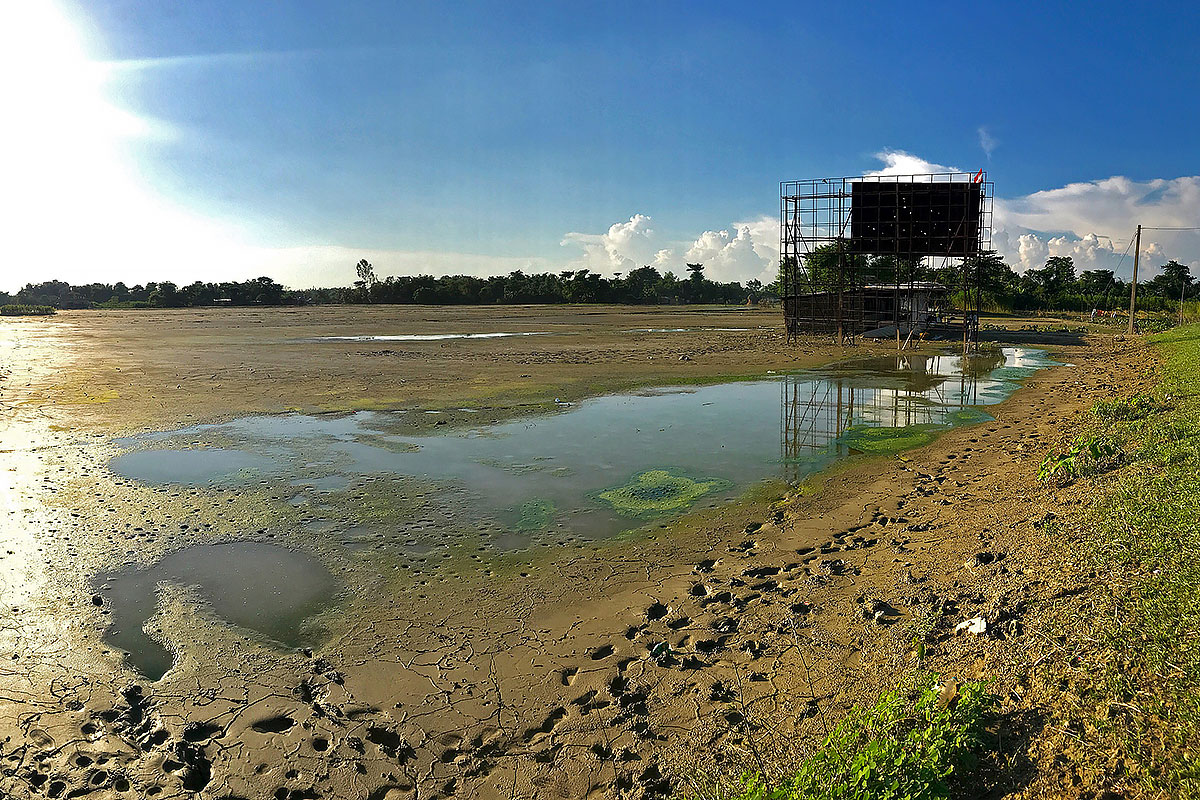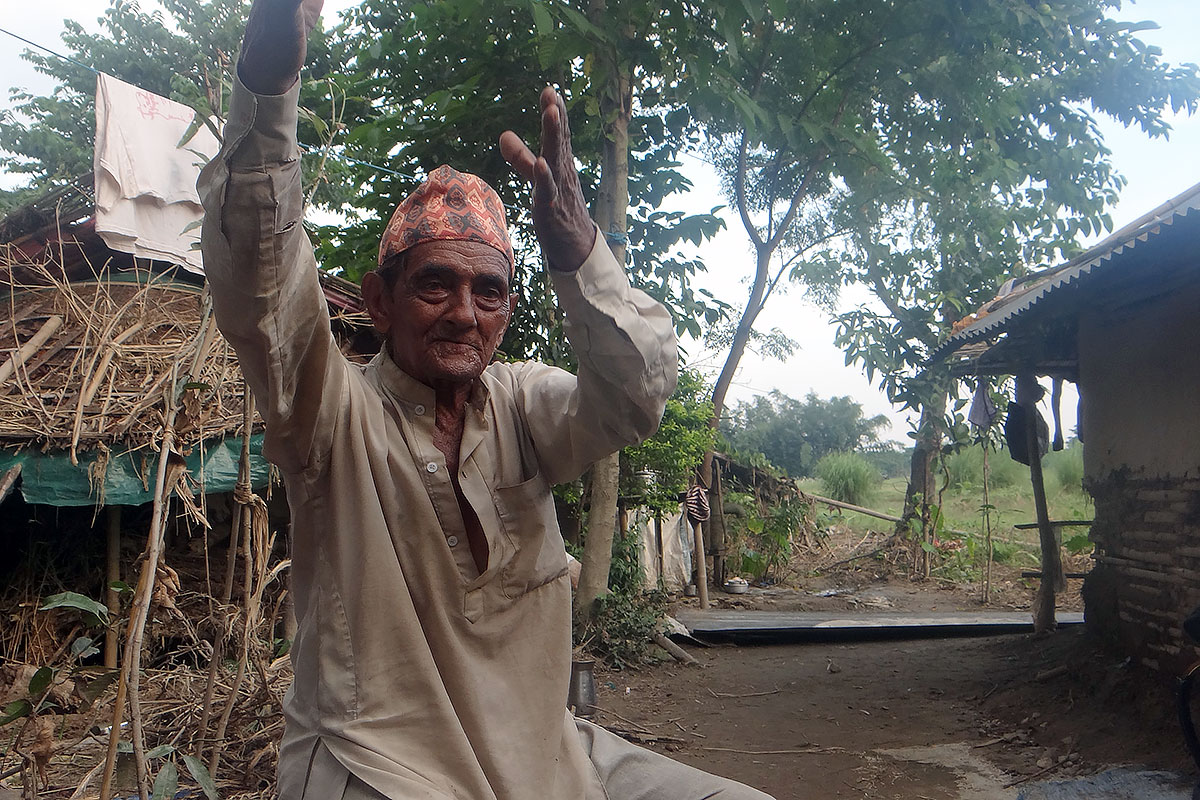
A woman from Bhajani Municipality, in Kailali district in the far western part of Nepal cooks food at waterlogged premises. Photos: LWF/ P. Maharjan
LWF program restores livelihoods and environment
(LWI) – The floods which swept his crops away and wreaked havoc in his village took Ganga Bahadur Bhujel, 58, by surprise: “We never had a flood like this before. We took it for granted that we were living in a safe place,” the resident of Jhapa Rural Municipality said.

Ganga Bahadur Bujel.
Ganga lost his house, three goats, tools, clothes and other household items to the flood and took shelter at Tribhuvan primary school, two and a half kilometers away from his residence. LWF Nepal provided him and his family of five with food, fabric for new clothes, blankets and kitchen utensils.
In the summer of 2017 heavy monsoon rains caused floods and landslides in half of Nepal’s districts. According to government figures, 79,812 houses were destroyed, another 144,444 damaged. 143 people lost their lives, another 43 sustained injuries. The United Nations Office for the Coordination of Humanitarian Affairs (UNOCHA) estimated that 461,000 people (91,000 families) were displaced. It is estimated that 1.7 million people were affected in the country which is still recovering from a major earthquake three years ago.
The water destroyed the standing crops and swept away food grains and seeds. Farm land, pastures, and river banks were covered by sediment. According to the Ministry of Agricultural Development, the agricultural sector lost plants and grains worth millions of Euros.

A glimpse of a paddy field covered by debris in Rangeli Municipality, eastern part of Nepal. After the water had destroyed standing grains, many fields were unusable due to thick layers of sediment.
Restore livelihoods, prevent disasters
Climate change is believed to be one of the causes of such unexpected disasters. “Some decades earlier, the impact of climate change was neither as pronounced as today nor the people were as aware of its impacts as now,” says Prabin Manandhar, LWF Country Director in Nepal.
LWF was one of the first organizations to support affected communities in Jhapa, Morang, Sarlahi, Chitawan and Kailali districts. LWF increased access to safe water, sanitation and hygiene (WASH) - repairing and maintaining school toilets, installing water pumps, distributing hygiene kits and conducting sanitation campaigns in schools and communities.
It was not just the relief goods which helped us survive the crisis. It was also the feeling that there are people and organizations to support us during emergencies. This gave us the strength to face the situation.
“It was not just the relief goods which helped us survive the crisis,” Sandhoj Sundas, 85, a resident of Jhapa Rural Municipality in eastern Nepal, said. “It was also the feeling that there are people and organizations to support us during emergencies. This gave us the strength to face the situation.”
Build for the future
The LWF team did not stop at providing relief goods, but looked into how to equip communities in dealing with similar situations in the future. The LWF team trained communities and schools in emergency preparedness and disaster risk reduction, establishing with them procedures and ways to protect against similar catastrophes when the monsoon starts in a few weeks this year.
The team constructed hand pumps so that people would have access to safe drinking water in the event of such floods in the future, built dams along the river near settlements, and oriented the local people to preventive measures like planting bamboo trees along the river banks, and building spur dykes.
Part of that intervention were also discussions with the local government partners on how to mitigate the extreme weather events which are bound to increase in the coming years due to climate change.

Sandhoj Sundas, appreciated the feeling of not facing the disaster alone.
“Because of its scale and occurrence, this flood has taught us many lessons,” Manandhar said. “No one had imagined that all the means of transport, including air transport in some cases, and communication would come to a stop for two weeks. It has taught us that we need to have alternatives.”
In meetings with the newly elected local government representatives, LWF also discussed the need to preserve and properly manage open spaces as safe areas in emergencies, and to re-think settlement policies. “It has been realized that the government should reconsider the present way of allowing people to settle in vulnerable areas closer to rivers and streams. Currently, there are no basic facilities like drinking water, means of transport, electricity, telecommunication and safe places required in these regions,” Manandhar said.


